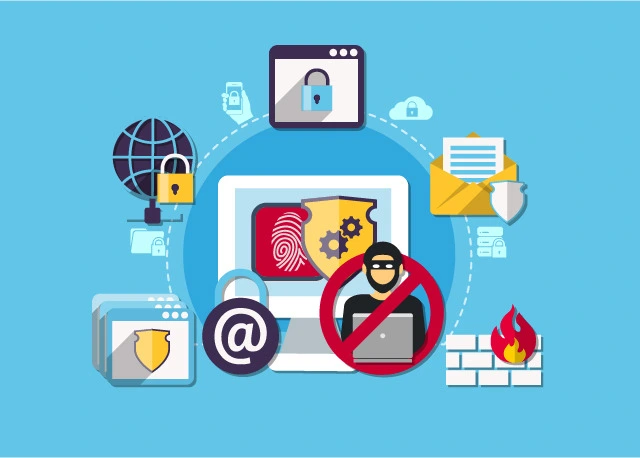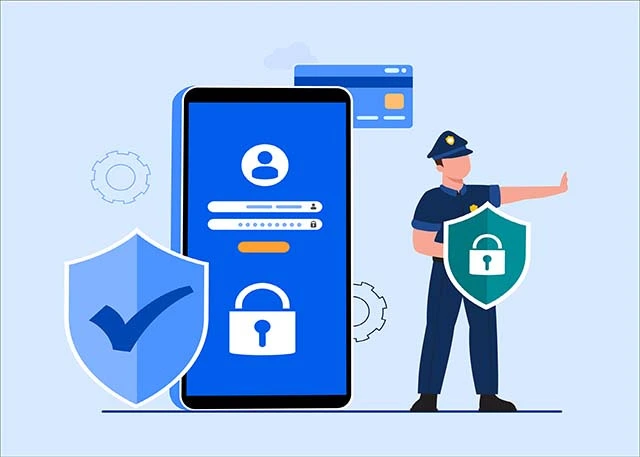
A Security Operations Center is a centralized facility or team responsible for proactively monitoring and defending an organization’s digital infrastructure from cyber threats. Its primary objective is to identify, analyze, and respond swiftly to security incidents. Understanding SOC’s functions and components is essential for maximizing security in its implementation.
At the core of a SOC is its team of security analysts who use advanced tools and technologies to monitor networks, systems, and data for any anomalies or signs of a breach. These analysts constantly analyze security logs, conduct threat intelligence, and collaborate with other departments to investigate and resolve any security incidents.
Another crucial component of a SOC is its incident response team. These skilled professionals are responsible for developing and executing incident response plans, coordinating with the relevant stakeholders, and implementing necessary remediation actions to limit the impact of a breach.

Firstly, a Security Operations Center (SOC) continuously monitors an organization’s networks, systems, and data in order to identify any suspicious activities or potential security breaches. This is achieved through the utilization of advanced tools and technologies, such as SIEM systems, which collect and analyze security logs in real-time. By scrutinizing these logs, security analysts can swiftly identify anomalies and take appropriate action.
In the event of an incident, a SOC’s incident response team takes immediate action. This team is responsible for creating and implementing incident response plans, collaborating with different teams and departments, and ensuring that the necessary steps are taken to minimize the impact of the breach.
Furthermore, a security operations center service carries out extensive threat intelligence analysis. By monitoring global threat landscapes and tracking emerging threats and attack techniques, a SOC can stay well-informed and proactive in implementing the required security measures to protect an organization’s assets.
Another vital function of a SOC is its investigative work. Whenever a security incident occurs, the Security Operations Center closely examines the incident to determine its cause, extent, and potential consequences. This investigation helps to strengthen an organization’s defenses and prevent future incidents.
When it comes to implementing a Security Operations Center, organizations have several options to consider. Different types of Security Operations Center setups can be tailored to the specific needs and size of an organization.
Implementing a Security Operations Center (SOC) is crucial for any organization looking to maximize their cybersecurity efforts. Whether you choose an on-premises Security Operations Center , a virtual SOC, or a managed Security Operations Center service, there are certain best practices to keep in mind to ensure a successful implementation.
First and foremost, it is essential to have a clear understanding of your organization’s security goals and objectives. This will help you identify the specific requirements your Security Operations Center needs to fulfill. It is also crucial to conduct a thorough risk assessment to identify potential vulnerabilities and prioritize them accordingly.
Another important element is selecting the right SOC partner. Look for a provider that has extensive experience and a proven track record in the industry. Consider their expertise in threat intelligence, incident response, and continuous monitoring.
Additionally, having a well-defined incident response plan is vital. This includes establishing clear roles and responsibilities, creating escalation procedures, and implementing regular testing and training exercises.
Regular monitoring and real-time threat intelligence are also critical components of a successful SOC implementation. By staying up to date with the latest threats and trends, you can proactively detect and respond to potential security incidents.

Implementing a Security Operations Center offers numerous benefits to organizations, helping them strengthen their cybersecurity posture and protect sensitive data effectively. In this section, we will explore some of the key advantaes of having a SOC in place.
A SOC provides continuous monitoring of network activities and systems, enabling the identification of any suspicious behavior or potential security incidents in real-time. This proactive approach allows for immediate response and containment, reducing the time and impact of a successful attack.
When selecting cyber security companies, there are several factors to consider. First and foremost, it is important to assess the provider’s expertise and experience in the field. Look for cyber security consultant with a proven track record in delivering effective cybersecurity solutions. Additionally, consider their understanding of the specific challenges faced by your industry and their ability to provide customized solutions.
Another important aspect to consider is the range of services offered by the cyber security companies. Different organizations have different needs when it comes to cybersecurity. Ensure that the cyber security consultant offers suite of services that can cater to your organization’s specific requirements. This can include services such as network security, endpoint protection, cloud security, and more.
Security Operations Center teams leverage advanced security analytics tools and technologies to analyze and correlate data from various sources. This enables them to identify patterns, detect anomalies, and gain valuable insights into potential threats and vulnerabilities. The use of these analytics enhances the SOC’s ability to proactively identify and address security risks.
Agreeing on a confidentiality agreement : We sign confidentiality agreements with our clients to ensure that the information is confidential and not shared with any third party.
Relying on reliable teams : We identify teams specialized in security operations and ensure that team members are familiar with the latest security and encryption practices.
Use secure tools and technologies : We use advanced, secure tools and technologies to perform vulnerability scans without putting information at risk.
Maintaining a local environment : We perform vulnerability scans from within a safe and protected local environment, reducing the risk of exposure to cyber attacks.
Necessity Assessment : We evaluate the need for access to sensitive information during security operations, and determine who is authorized to access it based on necessity.
SOC teams are skilled in unraveling complex security incidents and investigating their root causes. Their expertise allows for efficient incident resolution, reducing the time required to mitigate the impact of an attack and optimizing business operations.
Many industries have specific compliance and regulatory requirements concerning data protection and security. Implementing a SOC helps organizations meet these requirements by maintaining a robust security infrastructure, monitoring and reporting on security incidents, and ensuring the confidentiality, integrity, and availability of critical data.
While implementing a Security Operations Center is crucial for enhancing cybersecurity, it is essential to acknowledge the challenges that organizations may face during the implementation process. Understanding these challenges will allow businesses to prepare and address them effectively.
Building and maintaining an effective soc security operations center can be costly, requiring investments in technology, personnel, and infrastructure. Organizations must allocate sufficient budgetary resources to ensure the Security Operations Center can handle the evolving threat landscape adequately.
Hiring and retaining skilled cybersecurity professionals can be challenging due to the scarcity of experienced personnel. Organizations need to establish comprehensive training programs and partnerships with educational institutions to bridge the skills gap and ensure a competent SOC team.
SOC teams often encounter a high volume of alerts, with many of them turning out to be false positives. It is crucial to implement robust triage processes and advanced automation tools to minimize the impact of false positives and prevent alert fatigue among SOC analysts.
Cybercriminals are becoming increasingly sophisticated, using advanced techniques to breach security defenses. SOC teams need to stay updated on emerging threats and continually enhance their tools and technologies to detect and respond to advanced persistent threats effectively.

When considering the implementation of a Security Operations Center service , it is important to distinguish between a SOC and a Network Operations Center (NOC). Although both centers deal with monitoring and managing systems, they have distinct purposes and require different skill sets.
A NOC primarily focuses on maintaining network performance, keeping systems running smoothly, and ensuring the availability of critical services. It is responsible for tasks such as network troubleshooting, performance monitoring, and incident response for network-related issues.
On the other hand, a SOC is dedicated to the security of an organization’s infrastructure, systems, and data. It focuses on threat detection, incident response, vulnerability management, and overall information security. The primary goal of a SOC is to proactively identify and detect security threats, respond to incidents promptly, and mitigate the impact of security breaches.
While NOCs and Security Operations Center have distinct roles, it is important to recognize that they can complement each other. Close collaboration between the two centers enables seamless information sharing and facilitates a more holistic approach to managing network and security operations. This integration allows for comprehensive monitoring and quick response to any issues that arise.
Organizations considering the implementation of a Security Operations Center service should assess their existing network operations capabilities and determine how the two centers can work cohesively to maximize overall security posture.
META TECHS is a leading technology company that specializes in providing cutting-edge Security Operations Center (SOC) services. With a commitment to safeguarding digital assets and ensuring the integrity of information, META TECHS offers a range of solutions designed to address the evolving challenges of the modern digital landscape.

In the world of cybersecurity, the implementation of a Security Operations Center service plays a pivotal role in safeguarding an organization’s infrastructure and data. By focusing on threat detection, incident response, and vulnerability management, a SOC makes it possible for businesses to proactively identify security risks, respond promptly to incidents, and minimize the impact of breaches.
However, to maximize the effectiveness of a SOC, it is crucial to integrate it with existing network operations capabilities. This collaboration allows for seamless information sharing and a more comprehensive approach to managing network and security operations.
When integrating a SOC with a Network Operations Center (NOC), organizations must consider several factors. First and foremost, clear communication and coordination between the two centers are essential. This includes establishing shared goals, defining responsibilities, and creating processes for information exchange.
Furthermore, it is vital to ensure that the necessary technologies are in place to support the integration. This may include implementing security information and event management (SIEM) systems, threat intelligence platforms, and incident response tools that facilitate seamless collaboration between the Security Operations Center and NOC.
Call now to explore our innovative services and make your experience with us unique and fruitful
WhatsApp us